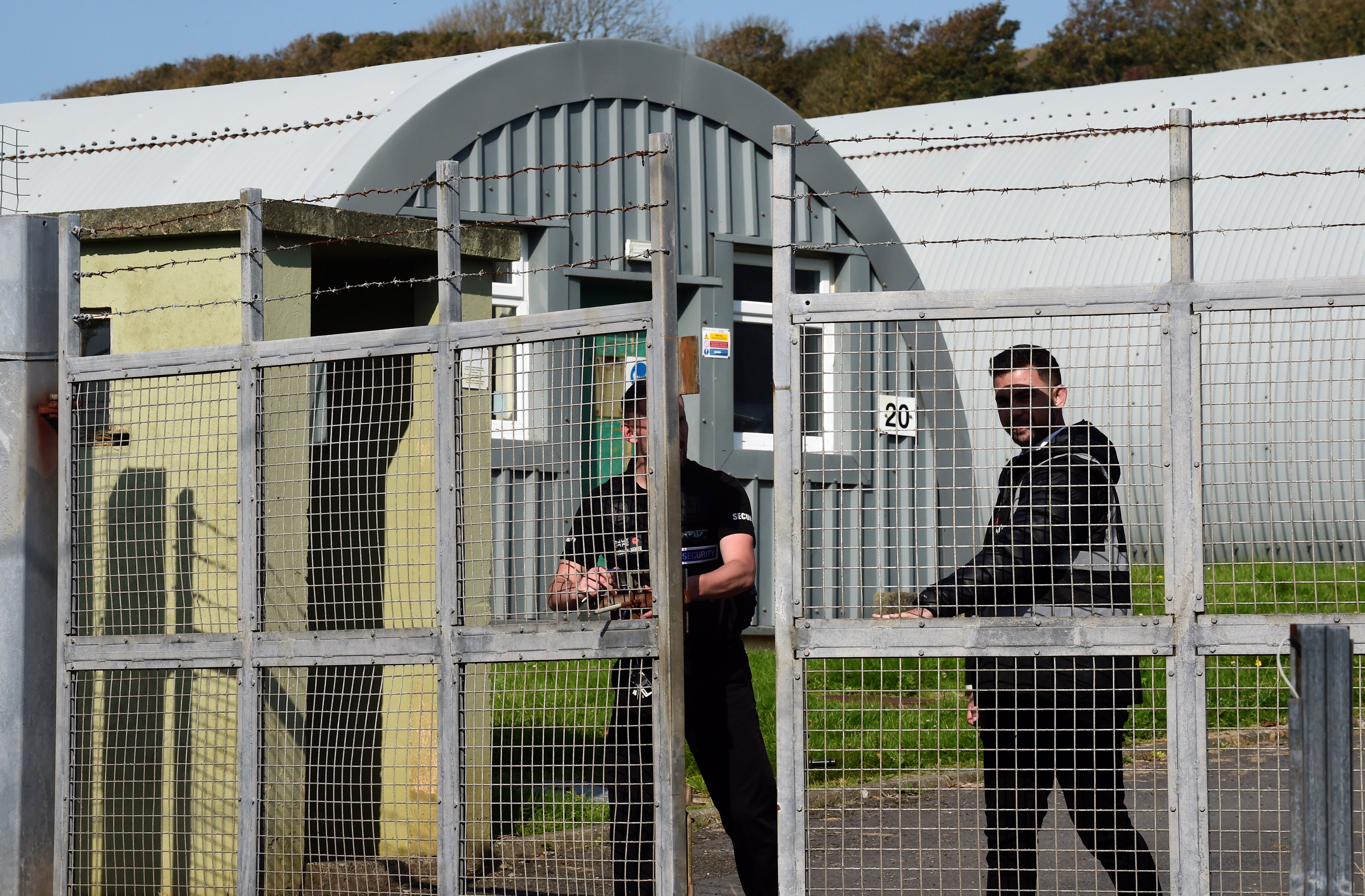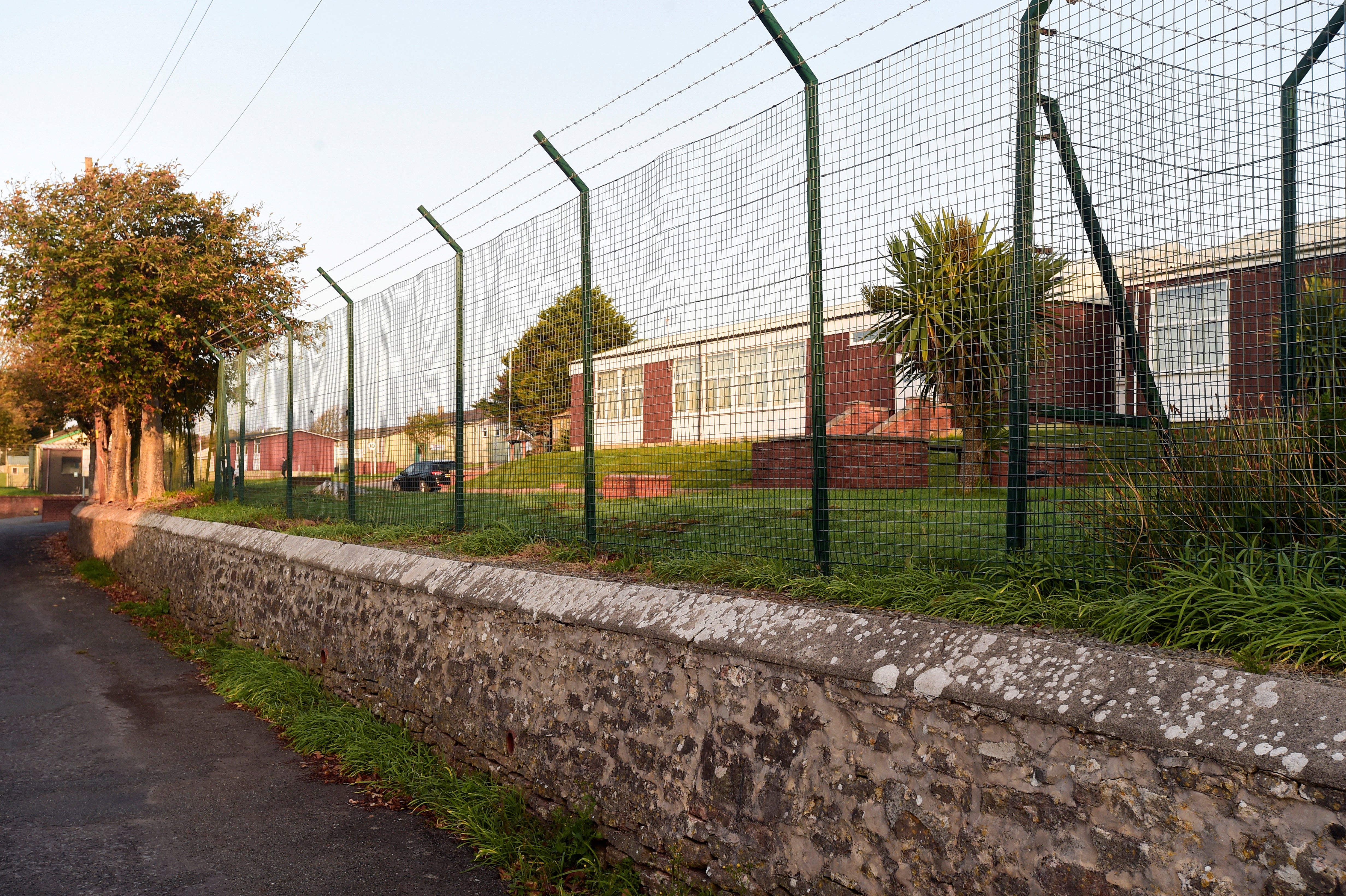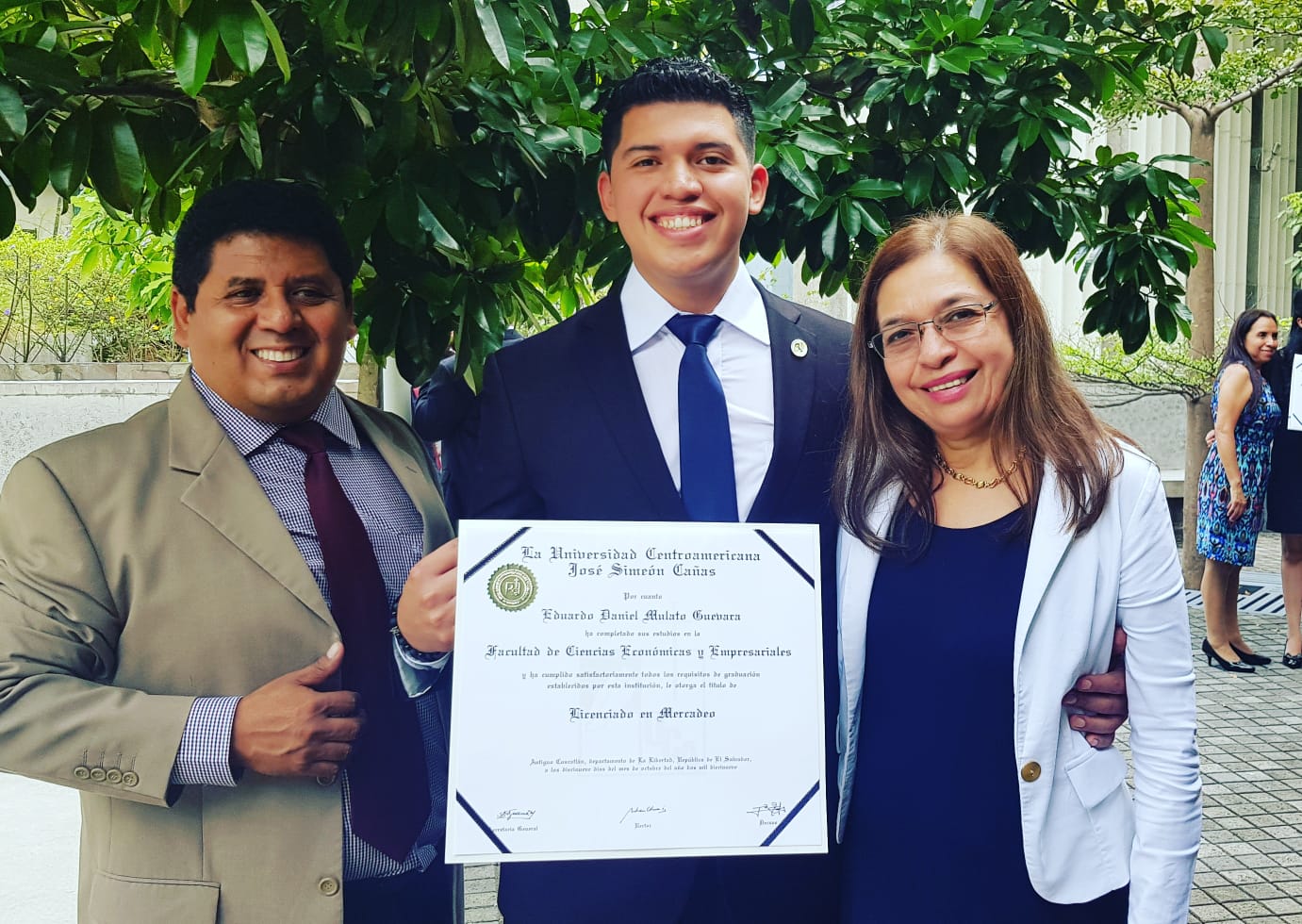Asylum Ltd: A story of gangsters, kidnap and a broken system
While fleeing gangsters who had kidnapped and threatened to kill him, Eduardo was thrust into Britain’s Kafkaesque asylum system. He speaks to Miles Ellingham and Carl Klink about life on the inside


Nine years ago, on his way home from college in Santa Tecla, Eduardo was kidnapped by gangsters. They call them “las maras” and they’re endemic in El Salvador, born from the rubble of a ruinous US-funded civil war back in the 1980s. According to statistics, about one in 12 Salvadorians are reliant on gang activity in some way and in 2015 El Salvador saw nearly one murder an hour. There are a host of reasons for this (the unending torrent of arms pouring into the region from US manufacturers, the supranational war on drugs, the Salvadorian Supreme Court’s designation of major gangs as “terrorists”, as well as rampant government corruption) though none of them occurred to Eduardo as he was robbed, knocked unconscious, stuffed into the back of a car and driven to a safe house outside the city.
Eduardo was 18 at the time, he’d just begun studying for a marketing degree. Coming-to surrounded by drunk young men brandishing M16s, Eduardo began to pray because he knew he was going to die. First, they threw him into a dark room and demanded the pin for his phone and his parents’ mobile numbers. When Eduardo hesitated, they beat him savagely and one of the maras pushed a gun into his face, telling him to speak now or die right there in the dark. Eduardo finally gave in and watched as they called his parents in front of him. For some reason, none of the calls went through – after a few more tries, the gangsters got bored and took Eduardo outside to be shot at the edge of the forest.
Incredibly, Eduardo survived. Just as the maras were about to execute him, a firefight broke out back in the safe house. Eduardo took advantage of the ensuing chaos and fled into the forest, not stopping for breath until he reached an A-road. From that day forward, Eduardo’s life was forever changed; the gangs knew who he was, they knew his face, they even had his parents’ mobile numbers. Eduardo and his family tried moving house, moving city, but there was no escape – and, even if there was, he was too traumatised to even leave the flat. After two years of stasis, one failed attempt at Italian citizenship and even more gangland terror inflicted on his older brother, Eduardo eventually found his way to the UK. He’d wanted to become a brand manager, but instead spent his early-twenties subsumed by fear and weathering the Kafkaesque nightmare that we’ve come to call the asylum process.
Last year the UK received 32,423 asylum applications. That’s four times less than France and Spain – it’s five times less than Germany. To give you some idea of perspective, 32,423 is roughly equivalent to the population of Lichfield, or to the total number of employees at Greggs. Proportionately speaking, here in the UK, you have a higher chance of coming across a French bulldog than an asylum seeker who arrived in the last 12 months. There’s a rough total of 126,000 refugees in the country right now, which is less than 0.002 per cent of the population. Nevertheless, there’s a lot of toxicity ginned-up by the far right against asylum seekers and, frankly, it’s becoming mainstream. Dogmatic, anti-refugee fearmongering on the front pages of major UK tabloids have long since breached the corridors of Westminster. The current home secretary – whose own parents fled persecution in Uganda – seems to harbour a near-devout hatred for asylum seekers and refugees, dreaming up new imaginative ways of punishing them and attacking “lefty human rights lawyers” for defending them. In reality, however, our repeated demonisation and institutional mistreatment of asylum seekers is a deep and profound shame on this country. It is a vindictive war against some of the most vulnerable people in the world, one that fails to empathise with the shared state of trauma that ties asylum seekers and refugees together.

As Eduardo explains, the journey to England from El Salvador is actually cheaper and safer than asking the traffickers for passage north through Mexico, though the asylum process is similarly gruelling on both sides of the Atlantic. Eduardo’s journey through the UK asylum apparatus started with him being taken from Heathrow to Colnbrook Immigration Removal Centre in Hillingdon, a grim internment facility where stateless refugees spend months – even years – in limbo before being frogmarched onto planes. After a few days in Colnbrook, he was transported to an adapted hotel in London.
You may have noticed coverage of these hotels last August when they became the latest focal point for far-right indignation and nativist dullards like Nigel Farage and Britain First filmed themselves wandering between the rooms, knocking on doors, hoping to surprise an asylum seeker in the middle of a state-funded continental breakfast. Unbeknownst to cave-dwellers like Golding and Farage, these places are bleak, purgatorial zones. The food is bad enough to cause asylum seekers such as Eduardo semi-serious infections – fixing them to the toilet for weeks at a time. But worse still is the acute feeling of loneliness and isolation that permeates facilities like these. With circumstances compounded by the pandemic, asylum seekers at the hotels are essentially punished with a new-model immurement programme – they are mostly isolated and spend weeks and months basically confined to the same budget hotel room. Eduardo used this time to learn English, but most spend it wrestling with unstable mental health. The dull containment of such migrants is not only cruel but it’s also a wasted economic opportunity – many NGOs understand this and provide opportunities for refugees to re-skill.
The Home Office called Penally ‘Covid-compliant’ but this couldn’t be further from the truth. Residents of Penally sleep together in rooms of six, stacked on bunkbeds, but, more importantly, everything is shared: appliances are shared, soap is shared and residents even have to shower together
After roughly three months in the hotel, without a single update concerning his application, Eduardo was told to pack his things. He wasn’t told where he was going or why, but on that very same night he was shepherded out of the hotel and onto a bus with a dozen-or-so other asylum seekers. It’s important to imagine here the impending sense of dread that most migrants must have felt at this moment: driving through the darkness, not knowing their destination, expecting the worst. Eduardo couldn’t sleep during the trip, and all around him passengers began to sob helplessly as they became certain they’d soon be deported. This is one of the many deliberate, little evils we choose to inflict on these people: staff could’ve easily told them where they were going, but instead chose to cultivate an oppressive atmosphere of ignorance. Regardless, the bus soon arrived at Penally – a now infamous converted military camp in Pembrokeshire, enclosed by high metal fences and razor wire.
Life for an asylum seeker in Penally is exceptionally degrading and stressful. The Home Office called Penally “Covid-compliant”, but this couldn’t be further from the truth. Residents of Penally sleep together in rooms of six, stacked on bunkbeds, but, more importantly, everything is shared: appliances are shared, soap is shared and residents even have to shower together – which, for the many practicing Muslims, can seriously undermine religious standards, not to mention the general lack of privacy. Eduardo’s arm remains scarred by a skin condition he contracted from sharing soap, at least, that’s what the doctors tell him. The food is always cheap and thin in places like this, but Penally takes this rule to unparalleled new heights, with some residents served liquid “boiled” eggs, chicken with feathers still attached or finding large insect stowaways in their meals. One asylum-seeker was hospitalised after going on hunger strike to protest the conditions.

There was also mistreatment from staff. Eduardo maintains that guards at Penally repeatedly treated asylum seekers “like animals”, subjugating residents to verbal abuse, and even goading them, trying to get them to lash out and ruin their application. In Penally – as it is known throughout the process – the application is everything; it is the possibility of deliverance, a second chance at life and it’s dangled over you constantly. Anyone who wields even a small level of control over the process has near-total power over you. “Misbehaviour” is reportedly leveraged against asylum seekers as something that can jeopardise their claim, this could allegedly be for something as basic as complaining about the food.
126,000
refugees currently reside in the UK
In the midst of all this, residents of Penally banded together to form something akin to a small union – they called it Camp Residents of Penally (Crop, for short). Crop began on WhatsApp and was used to arrange English classes. The group formed sub-committees, wrote a constitution, and liaised with charities. When management suddenly evicted the founding members of Crop from the camp, Eduardo was elected chair. As one of the few Salvadorians at Penally, Eduardo was removed from some of the internal feuds and his strong grasp of English put him in good stead to reach out to third parties. However, it was not to last, and management quickly moved Eduardo to another temporary accommodation (a rat-infested house on the outskirts of Cardiff) in another effort to cut the head off the Crop snake.
Last week, news broke that asylum seekers will be “moved out” of Penally amid a “safety row”. Various articles have surfaced about the dire conditions at the camp, and the plight of asylum seekers in general, but what such editorials miss is the malign influence of unrestrained government outsourcing to negligent private actors. The operation of Penally was not a government service, but was subcontracted out to a company called Clearsprings Ready Homes.

Run the words “shady” and “corporation” through a complex enough algorithm and it’ll churn out Clearsprings Ready Homes in an instant. Clearsprings is a cartoonishly suspicious company headed by a chairman famous for cutting himself enormous salaries while at the same time shedding vast sections of his workforce. Graham King, who founded the business, reportedly “trousered £960,000 from the company in 2014”, one year before it was investigated by HMRC for “tax affairs”. In 2016, Clearsprings made the news again after they reportedly forced asylum seekers to wear identifying coloured wristbands “or they would not be fed”. The Clearsprings Ready Homes’ company website maintains this same shady, passing persona and even contains an entire banner section entitled, “Slavery and Human Trafficking”.
Despite having been flagged on several occasions for mistreatment of asylum seekers, Clearsprings’ contract with the Home Office was renewed in 2019. Along with two other contractors – the infamous Serco and the lesser known firm, Mears – they signed a £4bn deal for 10 years, which equalled roughly a third of the 2019-20 Home Office spending round. The amount allocated to Clearsprings is not openly disclosed but Serco and Mears have been reportedly given £1.9bn and £1bn respectively. All this money flowing from the taxpayer into the bank accounts of ghoulish private companies can also come at an enormous financial cost to local councils. According to the BBC, the Penally camp cost Pembrokeshire County Council an “estimated £55,000 a month”.
In 2019, then shadow home secretary Dianne Abbott responded to fresh asylum accommodation contracts saying: “These private companies have already failed to provide decent asylum accommodation, as they have failed in so many areas of social provision.” Abbott is right. Our asylum system must not be driven by profit – failure to recognise this is not only inefficient, it’s immoral. The same went for the probation services and community payback schemes, which we attempted to privatise for years before the effort was discontinued. Asylum seekers are not a product, they are not employees – their proper care is our national moral responsibility.
Eduardo’s story may be fraught with injustice and suffering, but he’s actually one of the lucky ones. In the summer of 2018 it was reported that British deportation centres were seeing an average of two suicide attempts per day. Asylum seekers have survived the worst of humanity, endured rape, slavery and torture and they carry the burden of trauma with them across the world. There’s something uniquely vicious about how we treat these people; we treat them as if they’re a threat, a malign otherness that must first be feared and then controlled. Eduardo isn’t bitter about the way he was treated, he has a remarkably sunny sensibility considering everything he’s been through and, if his application is approved, he wants to pursue an MA here in Britain.
Our asylum system is barbed, broken and in need of fixing. We must correct our perceptions of migrant refugees and get rid of the grubby, opportunistic private actors who seek to exploit them.
Join our commenting forum
Join thought-provoking conversations, follow other Independent readers and see their replies
Comments



Bookmark popover
Removed from bookmarks